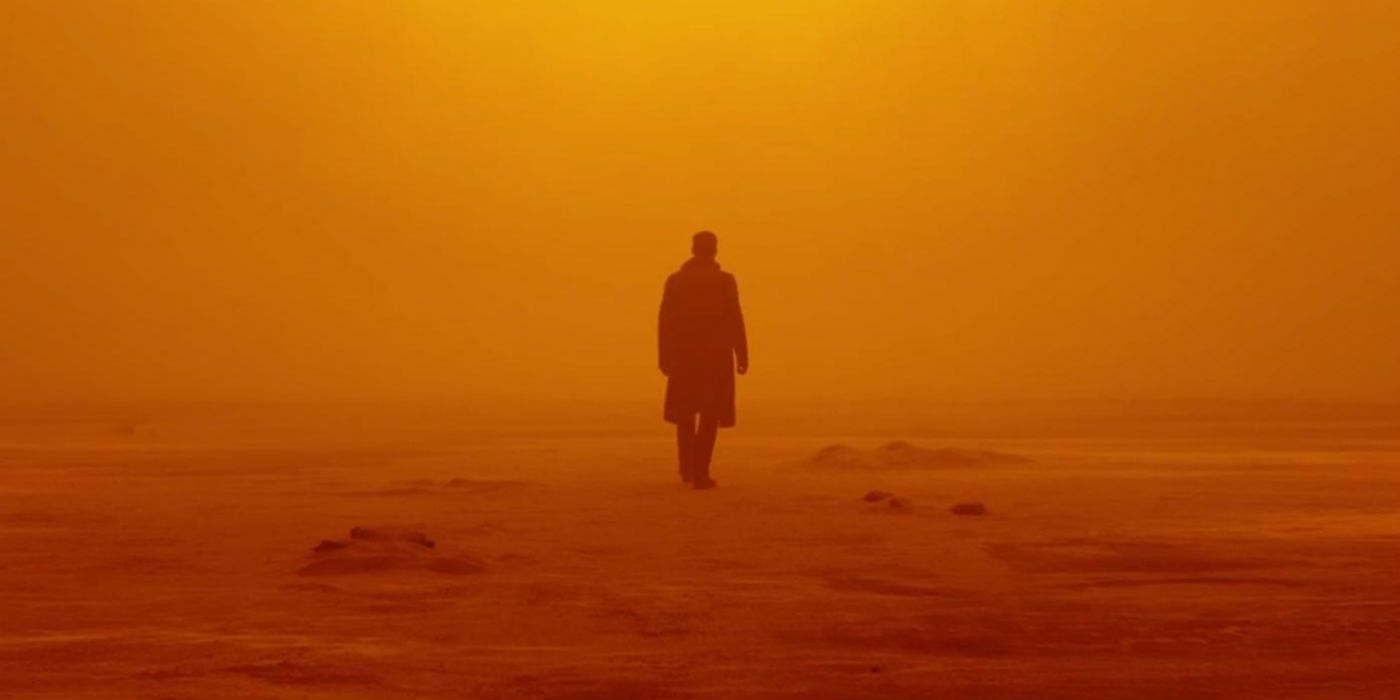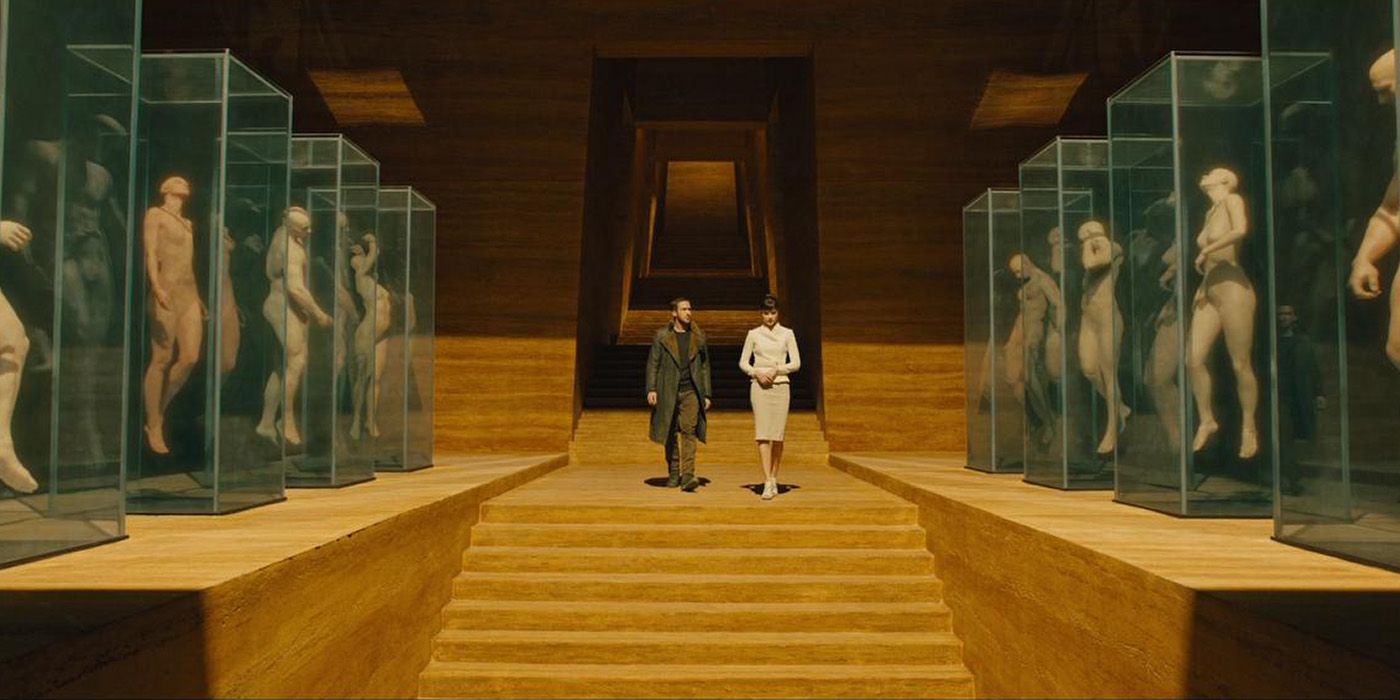It took 35 years, but the sequel to 1982's Blade Runner is finally out in the wild. After years of rumors, false starts, and semi-canonical spin-offs (remember Soldier?), the dream is finally a reality. Going into the fall movie season, Denis Villeneuve's sprawling sequel to Ridley Scott's iconic cyberpunk masterpiece was one of the pop culture community's most hotly-anticipated events of the year. Now, at long last, the finished film is available for fans and newcomers to view in all its rusty, violent, existential glory.Going into the weekend, box office analysts had the title pegged for an opening around $50 million, a fine start for an R-rated film with an intimidating runtime of 163 minutes. Its showings on Thursday night were strong, bringing in around $4 million, but then, as the Friday numbers began to form, it was clear that something had gone awry.By the time the dust cleared on Monday afternoon, it was revealed that Blade Runner 2049 only brought in $32.7 million during its opening weekend, a far cry from initial estimates. What went wrong? Why did it open so much lower than expected? Can the Ryan Gosling/Harrison Ford sci-fi epic turn its fortunes around and still become a box office hit by the end of its run? Or Is Blade Runner 2049 a Box Office Bomb?
Internet Hype
As much as certain sections of the population rely on websites like Screen Rant to feed their hype, those people only make up a small portion of the larger movie-going audience. What excites some people doesn't necessarily excite other people. When certain groups of people become too excited, it can create the impression that everybody's excited, when really it's just an outspoken minority.
Take, for example, Snakes on a Plane, which is remembered as one of the first "viral" movies. It was a huge internet phenomenon in the months leading to its 2006 release, and hopes were high leading into release, but the Samuel L. Jackson schlock-fest only managed to bring in $34 million domestically, and $62 million worldwide. Perennial favorite Guillermo Del Toro has had the goodwill of fanboy praise on his side for years, but the painful truth is he's never really been able to make the jump to mainstream success. Both Hellboy movies and Pacific Rim were relative under-performers, and time will tell if his latest film, The Shape of Water, will be able to generate the Oscar buzz it needs to become a mainstream hit. And don't even get us started on Serenity, the highly-anticipated follow up to Joss Whedon's cult classic TV series, Firefly. All indications were that it was going to be huge, but it crashed and burned at the box office, much to the heartbreak of the fandom.
It seems like Blade Runner 2049 has become the latest victim of this phenomenon. The original Blade Runner is considered to be one of the greatest movies of all time, and director Denis Villeneuve is one of the hottest auteurs working today. His previous output includes Sicario, Prisoners, and Arrival, and Blade Runner is his largest movie to date in terms of scope and budget. However, the sad truth is that, even with the surprise success of Arrival, most people don't really know who Villeneuve is, and many movie-goers only know Blade Runner by reputation. In the lead-up to 2049's release, the internet was rife with people complaining about falling asleep during the original - a last-minute backlash against a movie which is supposed to be more relevant than ever. Could anecdotal memes like "Blade Runner is boring" have turned casual fans away? And how can they be brought back?
The Oscar Race
The release date of Blade Runner 2049 is something of a curiosity, and a double-edged sword. Originally, it had been scheduled for January 2018. However, the date was moved up to October 6, 2017, perhaps to debut in a more prestigious frame than the typical wasteland that is January. In addition, the film is generating significant Oscar buzz for director Villeneuve and cinematographer Roger Deakins, as well as other categories.
The only problem here is that Blade Runner's October release date is a bit too early for it to truly benefit from Oscar buzz, at least in the immediate future. Oscar "buzz" is one thing, but the actual nominations don't come out until January 23, more than three months out from this writing, when Blade Runner 2049 will be out of theaters. Will Warner Bros. (or Sony, in international markets) consider giving the film a re-release or significant expansion to capitalize on its Oscar chances? Or will that just be more trouble than it's worth?
Why This Release Date?
Initially, Blade Runner was set to come out too late to cash in on any potential Oscar buzz. As it stands, it came out too early for that boost to be part of the equation, but that's not to say that Warner Bros. made a mistake. Sure, Blade Runner could be seen as an "Oscar movie," but it's also a grandiose sci-fi sequel with spectacular special effects and amazing production design. It's a movie which, common wisdom dictates, needs to open big. Like, "fifty million dollars" big.
To that end, the decision to release the film on October 6 seemed a sound one. It had no major competition; it's been weeks since It tore up the September box office landscape, and no other film has truly broken out since then - the reasonably strong performance of Kingsman notwithstanding. As for the actual release date, 2049's only competition came in the form of counter-programming; The Mountain Between Us, a romantic survival drama, and My Little Pony, a children's movie (though not without its periphery adult fanbase).
Indeed, Blade Runner's opening haul of $32 million was leaps and bounds above Mountain and Pony, which grossed $10.5 mil and $8.8 mil, respectively. In essence, the road was paved for Blade Runner. The audience simply didn't turn out the way so many were hoping they would. Still, it's worth mentioning the uncommonly high number of adult-targeted films which collectively may have eaten into Blade Runner's box office prospects. It, Kingsman, and American Made are all adult-aimed, R-rated films. Combined, those three pictures made over $27 million this weekend, indicating that Blade Runner did, in fact, face more competition than one might notice at first blush.
The Coming Weeks
After a lackluster opening compared to industry expectations, what's next for Blade Runner 2049's box office prospects? In the run-up to release, 2049 was often compared to long-awaited R-rated sequels like Prometheus and Mad Max: Fury Road, as well as Ridley Scott's The Martian, which opened on the first weekend of October back in 2015. For a worst-case scenario, we're also going to throw Ridley Scott's financially disappointing Alien: Covenant into the mix.
The opening weekend can be a good indicator of where a movie will end up, but there's always more variables to consider, like word-of-mouth, release season, and competition. Prometheus and The Martian both opened with around $50 million ($51 and $54, respectively), but Prometheus ended its run with $126 million at the domestic box office, while The Martian managed to reach loftier heights, ultimately landing at an impressive $228 million, more than quadrupling its opening weekend. It's a sure bet that the Blade Runner 2049 team are hoping their movie plays more like The Martian, or Mad Max: Fury Road ($45.4 mil opening, $154 mil total), than something like Prometheus or Alien: Covenant, a film which only just barely doubled its own lackluster opening weekend.
That the film has been given multitudes of positive reviews will surely help Blade Runner in the weeks and months to come, but, even with a 4X multiplier, 2049 will still only end up at around $131 million domestic. While it's too early to say if the film will end up playing that well (or even better), there's also the genuine possibility that it simply doesn't catch on with general audiences, in which case reaching even $100 million will be an uphill battle.
How Much Money Does Blade Runner Need To Make?
Blade Runner 2049 carried a budget of at least $150 million, not including marketing. There's an old myth which says if a film makes twice that amount worldwide, then it's profitable, but the truth is rougher than that wistful desire.
In the United States, studios only take home about half of what a movie makes in the theaters, and their cut is even smaller in the international market, especially China, where their margin can slip down to a meager 25%. Plus, the bigger a movie's budget is, then the bigger its marketing budget tends to be, to the point where it's been said that films like Spectre and Men in Black 3 needed to make upwards of $650 million just to break even.
That old myth should be amended to, "If a movie makes twice its budget domestically, then the international marketplace can pick up the slack and the movie can turn a profit." Blade Runner's budget, while quite large, is comparably modest in comparison to movies like Avengers: Age of Ultron Star Wars: The Force Awakens ($250 mil each), but it still has an uphill battle towards profitability. It all depends on what territories make more money, but a reasonable gambler would say 2049 needs around $450 million worldwide before it can consider itself a box office success. The film had a strong opening overseas, to the tune of $50 million, but it remains to be seen how the worldwide box office story will ultimately play out.
Of course, there is also more to be considered with regards to a movie's financial impact, from television and streaming rights to DVD and Blu Ray sales, to merchandising and more, but that's beyond the interest of this story, as well as most investors, stockholders, and other bookkeepers.
The Film As It Needed To Be Made
For director Denis Villeneuve, Blade Runner 2049 was a labor of love, a passion project like nothing else in his career to date. He chose to make the film for himself, for the art, and for movie-making itself. Does that alienate some segments of the population? Would Warner Bros. (and Sony) have made more money if they forced Villeneuve to trim down the running time, reign in the violent and sexual content to lock in a PG-13 rating, and brighten up the "doom and gloom" aesthetic of the setting? Maybe. It's impossible to know for sure, but consider this: a marketable picture might play well on opening weekend, but a truly masterful work of art has greater potential to have long legs at the box office, and on home video, and in the public consciousness for generations to come.








